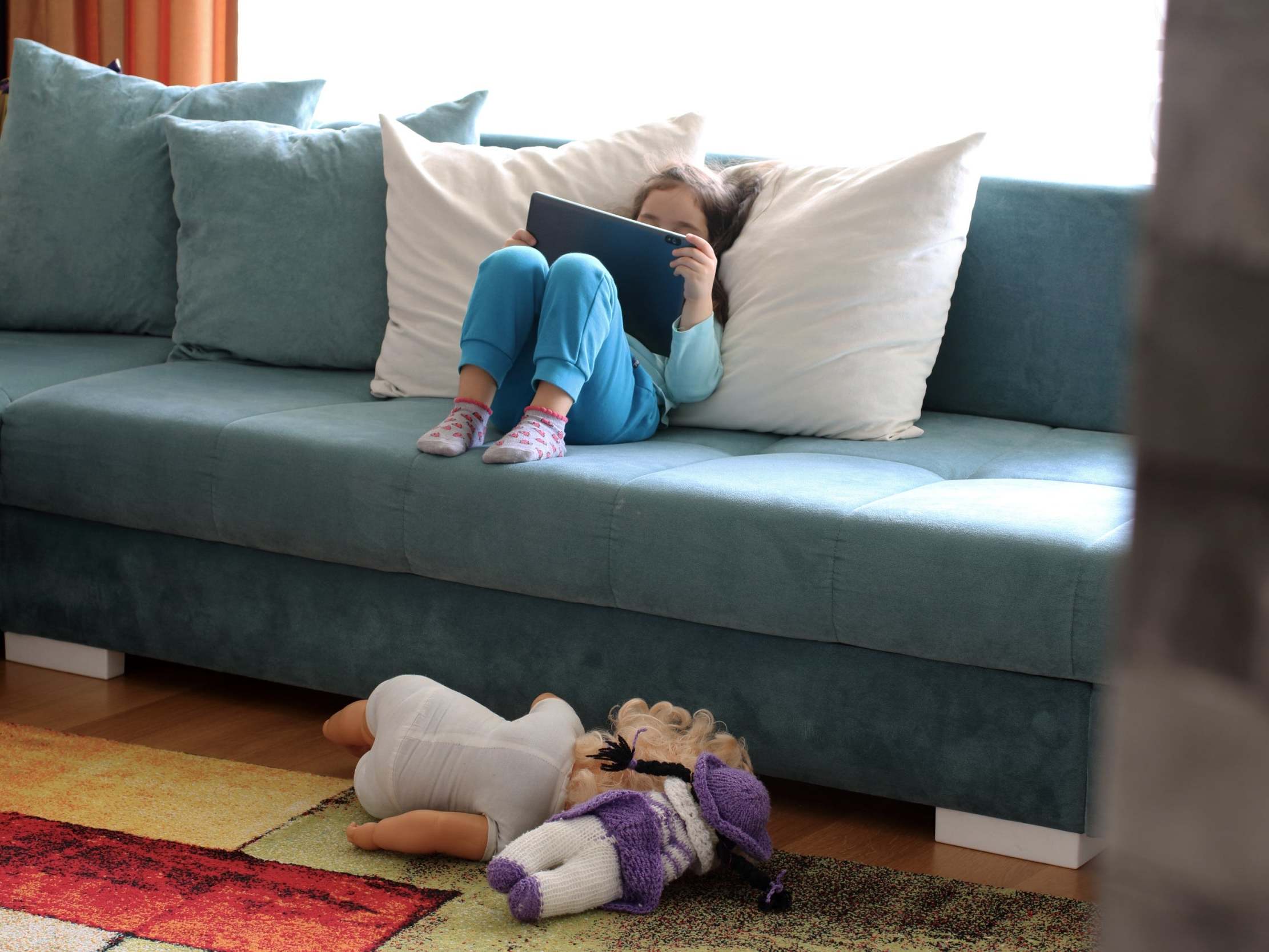Screen time has long been blamed for making children inactive, but it could also affect thier school performance, researchers have warned.
The more screen time a child is exposed to at a young age the greater impact it has on their reading and maths test scores when they reach school age, a new study has revealed.
“Screen time is a part of everyday life for most families, and high levels of exposure, particularly to TV and digital media, may have a measurable impact on children’s academic outcomes,” said Dr Catherine Birken, senior author, staff paediatrician and senior scientist in the Child Health Evaluative Sciences program.
The study followed more than 5,000 Canadian children from 2008 to 2023. This included 3,300 children aged nine, who would be in Year 4 at school in Britain, and 2,000 children age 12 – who would traditionally be in their first year in secondary school in Britain.
Parents reported screen time use during early childhood and researchers compared it to later academic achievement on standardised tests administered by the Education Quality and Accountability Office (EQAO), specifically in Grade 3 reading and maths, and Grade 6 maths.

The findings, published in the journal Jama Network Open, revealed each extra hour of daily screen time in young children was associated with a 9 per cent drop in the likelihood of them achieving higher academic grades.
It also led to 10 per cent reduced odds of achieving a higher grade in maths among older pupils in the study.
Test scores were found to be lower in reading and maths, but screen time appeared to have less of an impact on a child’s writing abilities.
The findings come as Prince Harry and Meghan Markle accused social media firms of exploiting children through manipulative algorithms.
The Duke and Duchess of Sussex previously warned that young people are experiencing an “epidemic” of anxiety, depression and social isolation driven by negative experiences online.

The World Health Organization suggests no screen time at all for children below the age of one, and no more than one hour per day for under-fours – but this is mostly because it leads to less physical activity.
However, this latest study suggests exposing young children to more than an hour’s screen time a day could also affect their academic ability.
In the observational study, children were given a standardised test, one for Grade 3 children who had an average screen time of 1.6 hours a day, and another for Grade 6 children who had an average of 1.8 hours of screen time a day.
Researchers found TV and digital media time, which includes television, computers, and smartphones, was associated with lower reading and maths scores for both male and female students.
But among female students, video game use was linked to lower achievement in Grade 3 reading and math compared to male students.
“While our findings highlight the importance of considering how much screen time children are exposed to, any interventions should also take into account the type of content kids are watching and whether they are watching it alone or with caregivers and friends,” said Xuedi Li, first author and Epidemiologist at SickKids.
But experts warned that the findings should be interpreted with caution.
Chris Ferguson, professor of psychology at Stetson University in Florida in the US, said: “Many studies, including studies of higher quality than this one, have found no evidence screen time influences school outcomes, so we need to look at the totality of evidence.
“Put simply, this study provides little real evidence for a link between screen time and school performance in youth.”





